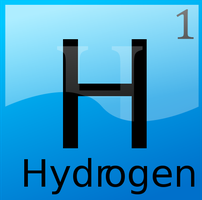Carbon leads the way in clean energy

Groundbreaking research at Griffith University is leading the way in clean energy, with the use of carbon as a way to deliver energy using hydrogen.
Professor Xiangdong Yao and his team from Griffith's Queensland Micro- and Nanotechnology Centre have successfully managed to use the element to produce hydrogen from water as a replacement for the much more costly platinum.
"Hydrogen production through an electrochemical process is at the heart of key renewable energy technologies including water splitting and hydrogen fuel cells," says Professor Yao.
"Despite tremendous efforts, exploring cheap, efficient and durable electrocatalysts for hydrogen evolution still remains a great challenge.
"Platinum is the most active and stable electrocatalyst for this purpose, however its low abundance and consequent high cost severely limits its large-scale commercial applications.
"We have now developed this carbon-based catalyst, which only contains a very small amount of nickel and can completely replace the platinum for efficient and cost-effective hydrogen production from water.
"In our research, we synthesize a nickel-carbon-based catalyst, from carbonization of metal-organic frameworks, to replace currently best-known platinum-based materials for electrocatalytic hydrogen evolution.
"This nickel-carbon-based catalyst can be activated to obtain isolated nickel atoms on the graphitic carbon support when applying electrochemical potential, exhibiting highly efficient hydrogen evolution performance and impressive durability."
Proponents of a hydrogen economy advocate hydrogen as a potential fuel for motive power including cars and boats and on-board auxiliary power, stationary power generation (e.g., for the energy needs of buildings), and as an energy storage medium (e.g., for interconversion from excess electric power generated off-peak).
Professor Yao says that this work may enable new opportunities for designing and tuning properties of electrocatalysts at atomic scale for large-scale water electrolysis.
The study will be published in Nature Communications.
Journal information: Nature Communications
Provided by Griffith University




















